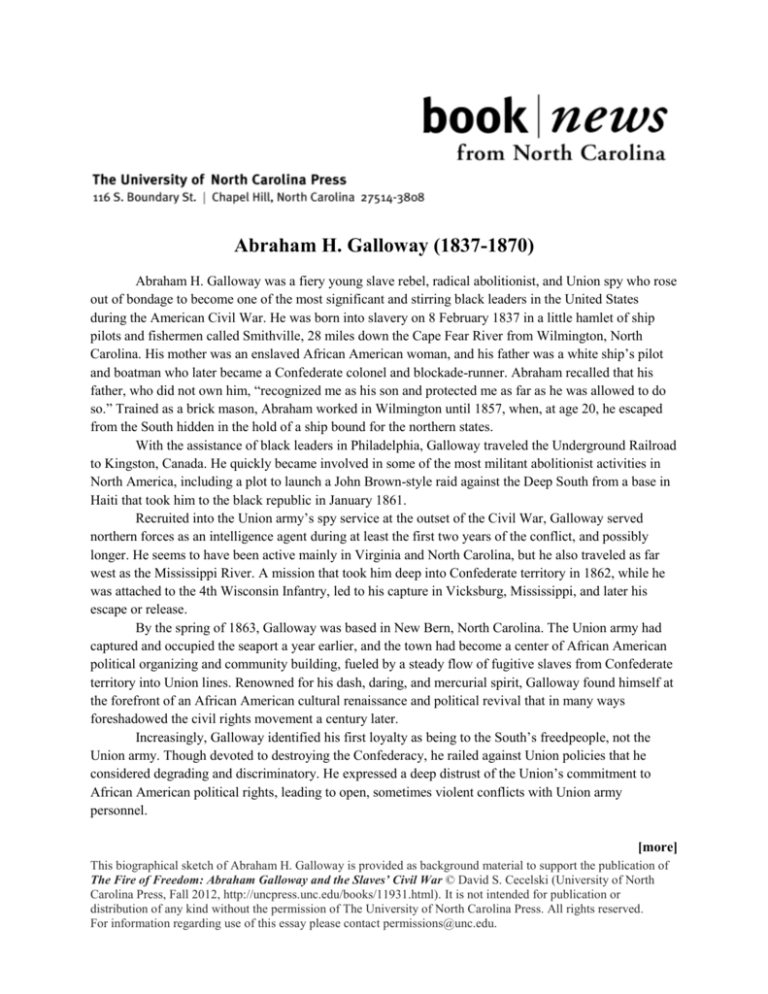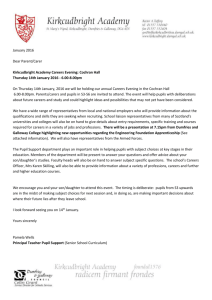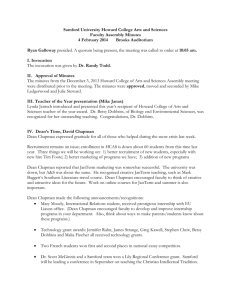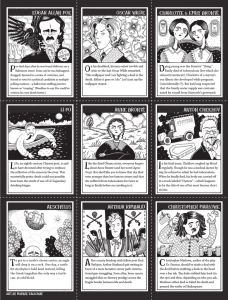
Abraham H. Galloway (1837-1870)
Abraham H. Galloway was a fiery young slave rebel, radical abolitionist, and Union spy who rose
out of bondage to become one of the most significant and stirring black leaders in the United States
during the American Civil War. He was born into slavery on 8 February 1837 in a little hamlet of ship
pilots and fishermen called Smithville, 28 miles down the Cape Fear River from Wilmington, North
Carolina. His mother was an enslaved African American woman, and his father was a white ship’s pilot
and boatman who later became a Confederate colonel and blockade-runner. Abraham recalled that his
father, who did not own him, “recognized me as his son and protected me as far as he was allowed to do
so.” Trained as a brick mason, Abraham worked in Wilmington until 1857, when, at age 20, he escaped
from the South hidden in the hold of a ship bound for the northern states.
With the assistance of black leaders in Philadelphia, Galloway traveled the Underground Railroad
to Kingston, Canada. He quickly became involved in some of the most militant abolitionist activities in
North America, including a plot to launch a John Brown-style raid against the Deep South from a base in
Haiti that took him to the black republic in January 1861.
Recruited into the Union army’s spy service at the outset of the Civil War, Galloway served
northern forces as an intelligence agent during at least the first two years of the conflict, and possibly
longer. He seems to have been active mainly in Virginia and North Carolina, but he also traveled as far
west as the Mississippi River. A mission that took him deep into Confederate territory in 1862, while he
was attached to the 4th Wisconsin Infantry, led to his capture in Vicksburg, Mississippi, and later his
escape or release.
By the spring of 1863, Galloway was based in New Bern, North Carolina. The Union army had
captured and occupied the seaport a year earlier, and the town had become a center of African American
political organizing and community building, fueled by a steady flow of fugitive slaves from Confederate
territory into Union lines. Renowned for his dash, daring, and mercurial spirit, Galloway found himself at
the forefront of an African American cultural renaissance and political revival that in many ways
foreshadowed the civil rights movement a century later.
Increasingly, Galloway identified his first loyalty as being to the South’s freedpeople, not the
Union army. Though devoted to destroying the Confederacy, he railed against Union policies that he
considered degrading and discriminatory. He expressed a deep distrust of the Union’s commitment to
African American political rights, leading to open, sometimes violent conflicts with Union army
personnel.
[more]
This biographical sketch of Abraham H. Galloway is provided as background material to support the publication of
The Fire of Freedom: Abraham Galloway and the Slaves’ Civil War © David S. Cecelski (University of North
Carolina Press, Fall 2012, http://uncpress.unc.edu/books/11931.html). It is not intended for publication or
distribution of any kind without the permission of The University of North Carolina Press. All rights reserved.
For information regarding use of this essay please contact permissions@unc.edu.
2-2-2 Abraham H. Galloway (1837-1870)
At this time, Edward Kinsley, a special emissary of Massachusetts governor John A. Andrew,
remembered the 26-year-old former slave as a “very shrewd, smart, accomplished man.” According to
Kinsley, Galloway was the leader of an extraordinary group of militant black renegades who negotiated
the terms of local black enlistment into the Union army with him at gunpoint.
The reach of Galloway’s intelligence activities was evident in the fall of 1863, when he arranged
his mother’s escape from slavery in Wilmington, North Carolina. The seaport was far behind enemy lines
and was one of the most heavily guarded cities in the Confederacy, but Galloway somehow managed to
get his mother to safety in New Bern. At the time, Union brigadier general Edward A. Wild explained his
efforts to assist Galloway in transporting his mother from New Bern to Boston for the remainder of the
war by saying, “I would like to do all I can for Galloway, who has served his country well.”
During the rest of the Civil War, Galloway was involved in a whirlwind of political organizing
and increasingly represented the South’s freedpeople at a national level. At the end of 1863, he guided
Robert Hamilton, the editor of the country’s most important black newspaper, the Anglo-African in New
York City, on a pioneering tour of the freedpeople’s communities and their accomplishments in Virginia
and North Carolina. On 28 December, Galloway married Martha Ann Dixon, the daughter of former
slaves, in Beaufort, North Carolina.
In April 1864, Galloway led a delegation of five black leaders from North Carolina who met with
President Abraham Lincoln in the White House and petitioned the president for the full rights of
citizenship. After departing Washington, D.C., Galloway toured New York City, Boston, and other
northern cities, speaking out in favor of African American suffrage and political rights.
That summer, African American activists in New Bern elected Galloway to represent the
freedpeople of North Carolina as their delegate to the National Convention of Colored Men of the United
States in Syracuse, New York, the most important meeting of African American leaders held during the
war. He was one of 144 delegates who gathered in Syracuse on October 4-7, but one of only 16 from the
South. After the convention culminated with the founding of the National Equal Rights League, Galloway
toured the black North and addressed large crowds in Baltimore, Newark, New York, and other cities,
where he received a wildly enthusiastic reception as he gave rousing speeches that stressed the
importance of political rights and grassroots organizing in the Confederate states. “I am God’s free man,”
Galloway told the audience in Baltimore, “and I feel that I am ready to do all I can to lift up my own
oppressed brethren.”
When he returned to North Carolina, Galloway led efforts to organize the first local Equal Rights
League chapters in the country. Black activists elected him as president of the John Brown Equal Rights
League chapter in New Bern, and former slaves in Morehead City, 35 miles to the east, named their
chapter after him: the Abraham H. Galloway Equal Rights League. (Other local chapters were named
after President Lincoln, Rev. Henry Highland Garnet, and AME Zion bishop J. J. Pierson.) At New
Year’s 1865, Galloway served as “president” and “commander in chief” of a grand two-day celebration of
the Emancipation Proclamation’s second anniversary that drew thousands of black activists to New Bern.
After Appomattox, Galloway remained in the thick of the struggle for racial justice and political
equality, exhibiting, as one journalist said of him, an “exceedingly radical and Jacobinical spirit” that
[more]
This biographical sketch of Abraham H. Galloway is provided as background material to support the publication of
The Fire of Freedom: Abraham Galloway and the Slaves’ Civil War © David S. Cecelski (University of North
Carolina Press, Fall 2012, http://uncpress.unc.edu/books/11931.html). It is not intended for publication or
distribution of any kind without the permission of The University of North Carolina Press. All rights reserved.
For information regarding use of this essay please contact permissions@unc.edu.
3-3-3 Abraham H. Galloway (1837-1870)
resonated deeply among local African Americans. On 28 August 1865, Galloway emerged; a
correspondent for the New York Times put it, as the “leading spirit” of a mass meeting of black citizens
who assembled in New Bern to shape a political agenda for the postwar era. In a long keynote address,
Galloway called for voting rights and public schooling. “If the Negro knows how to use the cartridge box,
he knows how to use the ballot box,” he declared. A month later, Galloway called to order a landmark
convention of 117 black delegates representing 42 North Carolina counties in Raleigh.
Galloway and his wife returned to his mother’s home in Wilmington, the state’s largest city, in
late 1865 or early 1866. He played a central role in founding the state’s Republican Party in 1867. On 4
September, he gave the opening address at the founding convention of the state Republican Party at
Tucker Hall in Raleigh. That fall he was elected as a delegate to the constitutional convention that
convened in Raleigh in January-March 1868, where he was, in the words of historian W. McKee Evans,
one of “a small group of active delegates who largely dominated the life of the convention.”
During the constitutional convention, Galloway gained a special renown for his combativeness
and wry sense of humor. At the end of one conservative opponent’s harangue on the unfitness of blacks
for suffrage and the “moral impossibility of the negro’s ability to qualify himself as a voter,” Galloway
responded by saying “that the best blood in Brunswick County flowed in my veins,” a reference to his
own mixed-race heritage. “And if I could do it,” he added, “in justice to the African race, I would lance
myself and let it out.”
In the spring 1868 election, a coalition of black and white voters overwhelmingly chose Galloway
to represent New Hanover and Brunswick Counties in the state senate. He was one of three black senators
in the first class of African Americans to serve in the state’s senate, and he was one of the most influential
legislators in the 1868 session. That fall, voters in the state’s Third District also chose Galloway as a
presidential elector, which at that time put him on the statewide ballot, a first for an African American in
North Carolina. He was later elected head of a black militia founded to defend black communities against
the Ku Klux Klan and other white extremists, and he was reelected to the state senate in 1870.
During his Reconstruction political career, Galloway withstood repeated threats on his life and
survived at least two assassination attempts. In all aspects of his political life, he had a reputation for
fierceness. An opposition newspaper, apparently still squeamish about Galloway’s mixed-race parentage,
typically referred to him as “the pugilistic ‘Indian Senator,’” and the Brooklyn Daily Eagle in New York
referred to him as “the colored Napoleon.” Among his legislative priorities, however, were women’s
rights, and he twice proposed bills allowing women’s suffrage.
Galloway died unexpectedly, apparently of natural causes, on 1 September 1870 at his mother’s
home in Wilmington. He was only 33 years old. Though he never learned to read and write well, if at all,
and died a pauper, an estimated 6,000 mourners gathered at his funeral at St. Paul’s Episcopal Church.
One newspaper called it the largest funeral in the state’s history.
—David S. Cecelski
###
This biographical sketch of Abraham H. Galloway is provided as background material to support the publication of
The Fire of Freedom: Abraham Galloway and the Slaves’ Civil War © David S. Cecelski (University of North
Carolina Press, Fall 2012, http://uncpress.unc.edu/books/11931.html). It is not intended for publication or
distribution of any kind without the permission of The University of North Carolina Press. All rights reserved.
For information regarding use of this essay please contact permissions@unc.edu.







